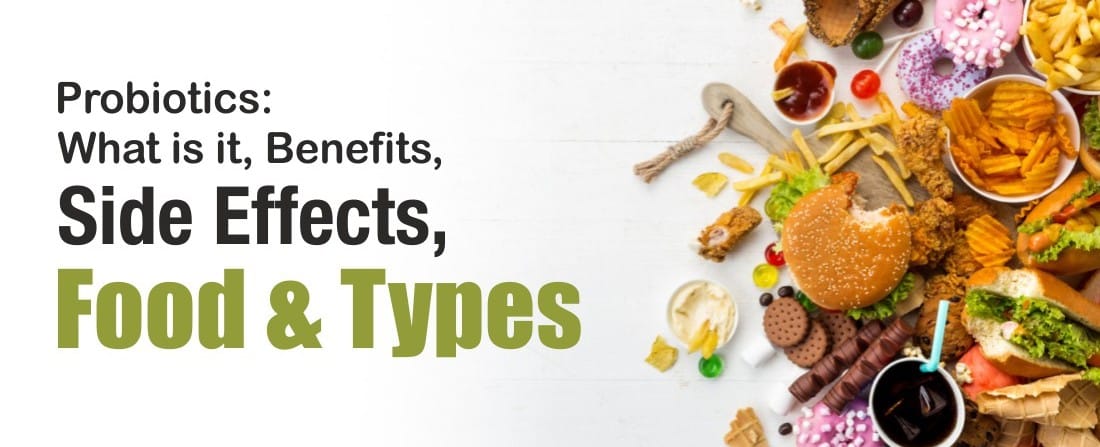Probiotics are live bacteria and yeast that occur naturally in the human body. At all times, your body contains both good and dangerous germs. When you get sick, your body creates more hazardous bacteria, throwing your system out of whack. The presence of good bacteria aids in the eradication of harmful bacteria, restoring balance. Probiotic pills are a way to add healthy bacteria to your diet.
What are probiotics?
Probiotics are live microorganisms that line the colon and help with digestion. Probiotics are vital to the human body because they maintain the balance between bodies of good and bad bacteria. They also aid digestion, allowing your body to absorb nutrients from food properly. Many probiotic supplements also include prebiotics, which helps probiotics grow. Probiotics are good bacteria in the digestive system, primarily in your large intestines.
Probiotics are part of your microbiome, a comprehensive picture of microorganisms and their interactions with your body. Consider a microbiome, a diverse collection of organisms that work together to maintain your body health, much like a forest. Microbes form the foundation of this community. Countless bacteria live in and in your body. These microorganisms are a mix of the following:
- Bacteria.
- Fungi are fungi (including yeasts).
- Viruses.
- Protozoa.
The microbiota of each individual is unique. Individual microbial cells, including twins, are distinct. To be designated as a probiotic, a microbe must possess specific characteristics. These capabilities include the ability to:
- Be isolated from a human.
- After intake, survive in your intestine (being eaten).
- Have a proven benefit to you.
- Be safely consumed.
What are the Health Benefits of Probiotics?
Probiotics have many benefits for overall health. From helping you gain weight to improving your immune system, probiotics may be just what your body needs. Many people take probiotics to relieve symptoms associated with lactose intolerance, including:
- Improve Gut Health by Balancing Bacteria in Your Digestive System: Many probiotic health benefits centre around the digestive system. Your gut contains millions of bacteria, which are essential for digestion. This probiotic health benefit is reflected in studies where probiotics were taken to relieve symptoms of irritable bowel syndrome and other bowel conditions.
- Relieve Symptoms of Certain Digestive Disorders: Probiotics may reduce some symptoms of lactose intolerance and irritable bowel syndrome, as they help balance the bacteria in the digestive system. In studies, probiotics have been shown to benefit patients with lactose intolerance significantly.
- Reduce the Frequency of Diarrhea: Probiotics may reduce the frequency of diarrhoea caused by infection by certain bacteria and viruses. Probiotics also help reduce symptoms of antibiotic-associated diarrhoea.
- Reduce Gas and Bloating: Probiotics may reduce the gas and bloating that result from certain bacteria. In addition, probiotics can help reduce the symptoms of IBS (irritable bowel syndrome), including abdominal pain, cramping and gas.
Possible Side Effects of Probiotics
- Digestive symptoms: Consuming too many probiotics can result in digestive problems such as discomfort, bloating, gas, constipation or diarrhoea.
- Infections : it can range from mild to severe, ranging from a cold to typhoid fever. In some cases, severe infections have been reported, especially if you are taking antibiotics or are critically ill. Antibiotics may also alter the balance of bacteria in your body and decrease the number of probiotics in your system.
- Allergies: For people with allergies to dairy and wheat products, probiotics should be taken cautiously and only in consultation with your physician because they may cause allergic reactions or increase symptoms.
- Small intestine bacterial overgrowth (SIBO): SIBO can cause many symptoms, including bloating, abdominal pain and distention, nausea, vomiting, poor absorption of nutrients and increased gas. SIBO can result from medication or a medical condition; if left untreated, it can lead to chronic diarrhoea or constipation.
Are probiotics also found in our food?
A short answer is yes. Probiotics are found naturally in various foods and drinks, including live foods such as yogurt and fermented beverages like kimchi. Other probiotic foods include:
For breakfast, try:
- Yogurt.
- Butter Milk.
- Sourdough bread.
For lunch, try:
- Cottage cheese.
- Kombucha.
- Tempeh.
For dinner, try:
- Fermented sauerkraut.
- Kimchi.
- Miso soup.
Types of probiotics.
While there are thousands of different probiotic species, there are mainly three types of probiotics.
- Lactobacillus and Bifidobacterium Blends: The two most commonly used types of probiotics are Lactobacillus and Bifidobacterium. These are well known for their ability to serve as a primary source for maintaining balanced digestive systems. More specifically, these species perform in the following ways:
- Saccharomyces boulardii, a beneficial yeast: Saccharomyces boulardii, a type of yeast, may play a beneficial role in improving the health of our digestive tract. Studies have shown that S. boulardii can help maintain a healthy balance of the bacteria in your gut by inhibiting the growth of harmful bacteria and reducing inflammation in the colon. More specifically, S. boulardii may:
- Soil-Based Blends, usually Bacillus species: Soil-based probiotics are an array of bacteria that have been isolated from dirt, also known as culturing or farming. Soil-based probiotics offer many benefits, including improving digestion, decreasing lactose intolerance, promoting a healthy immune response and improving intestinal health. Specific capabilities include:
Conclusion:
Probiotics are good bacteria in our bodies to keep our system working. We must collaborate with them rather than against them. If these probiotics get killed off by antibiotics or other drugs, we have a problem. To live well, you must have beneficial bacteria. Like many things like vitamins, your body needs them to function correctly. So, by maintaining the right amount of beneficial bacteria, you can live a healthier life and avoid sicknesses in the long term. You can do this by eating foods high in probiotics or taking supplements of those creatures, so they grow inside your gut and create more good stuff for you to enjoy.
















Leave a Reply